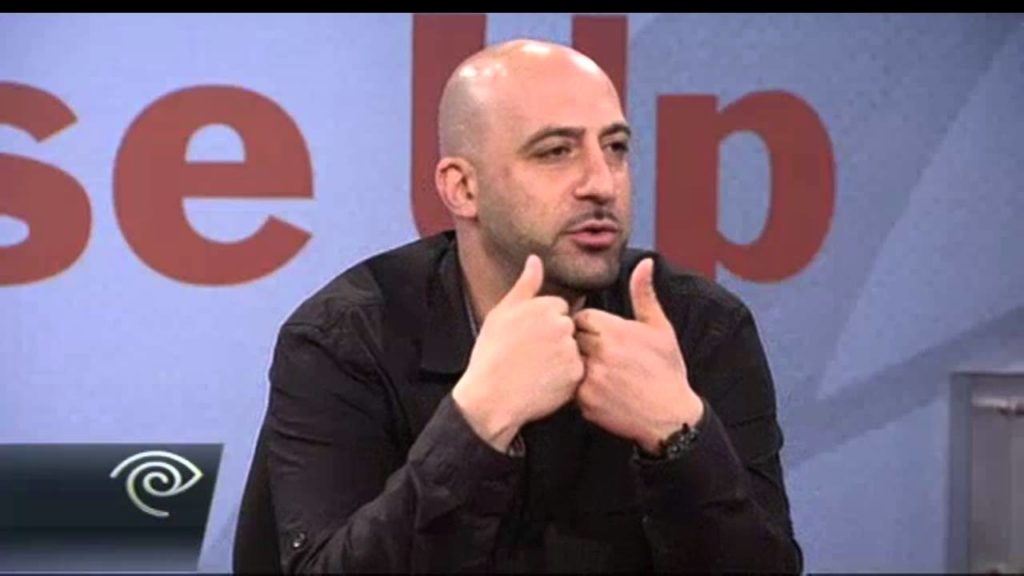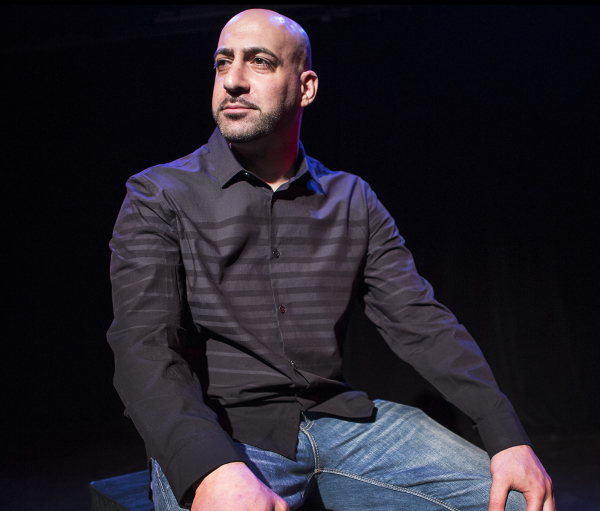ORADELL, N.J. — Joe Assadourian is a hugger. He doesn’t offer a half-hearted greeting, but a tight embrace, holding on for a few seconds as if enveloping a long-lost friend. He hugs and talks to everyone, removing any barriers with strangers at first glance, bringing his street charm into an eclectic suburban coffee shop here in Northern New Jersey.
Perhaps it’s that genuine nature and heart-on-his-sleeve persona that made him popular on stage as he assumed 18 characters in his one-man show “The Bullpen,” which he wrote and performed in over the course of two years at the off-Broadway venue The Playroom Theater. The show, which earned accolades and was dubbed as “wildly funny” by the New York Times, is currently in the process of being filmed for a comedy special on cable television with producer Larry Meistrich (who was behind the Academy Award winning “Sling Blade”) at the helm.
“The Bullpen,” which focuses on a man’s arrest and arraignment as he awaits trial for a crime he claims he did not commit, incorporates a multitude of true-to-life characters surrounding the confined space inside the bullpen and the courtroom, is based on Assadourian’s personal experiences during his own arrest and subsequent trial in 2001. The play, which was nominated for the Outer Critics Circle Award for Outstanding Solo Performance, hit the stage in July 2014, a few months after his release, and extended its run numerous times.
While “The Bullpen” was billed as a “jail show” by the media, Joe counters that claim, clarifying that it is about people. He gives heart to fully fleshed characters on stage, particularly the accused man who is convicted of a crime and how he is judged both by a jury and fellow prisoners.

“I got a PhD in people,” said Joe. “I been around a lot of different kinds of people and I absorbed them if they were interesting.”
A natural born performer, Joe inadvertently prepared for his career early on, growing up in industrial Paterson, New Jersey, where he was surrounded by individuals of all races. He always made it a point to observe and listen to the many dialects around him, particularly the Middle Eastern, African-American and Spanish populations he was immersed in. He emerged as a class clown, inciting laughter among his classmates, but facing a reprimand by his teachers and parents.








